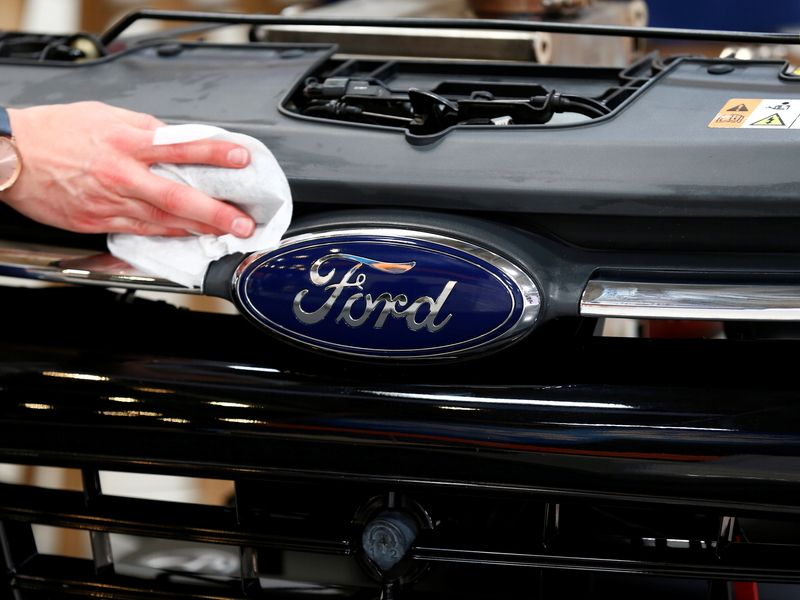
DETROIT — Ford Motor Co. is partnering with semiconductor manufacturer GlobalFoundries to accelerate production of U.S.-made chips amid the global shortage and to help design them in the future.
The non-binding agreement, which does not involve cross-ownership between the companies, will allow GlobalFoundries to supply additional chips to Ford for its current vehicle lineup as well as R&D purposes. Ford already buys chips from the company but the new partnership allows for more direct discussions that could speed up manufacturing and purchasing.
The companies also said Thursday they would explore “expanded semiconductor manufacturing opportunities.”
“It’s critical that we create new ways of working with suppliers to give Ford – and America – greater independence in delivering the technologies and features our customers will most value in the future,” Ford CEO Jim Farley said in a statement Thursday. “This agreement is just the beginning, and a key part of our plan to vertically integrate key technologies and capabilities that will differentiate Ford far into the future.”
Ford says the chips could be used in advanced driver-assist technologies, battery management systems and in-vehicle networking for future automated, connected and electrified vehicles.
Eventually, Ford wants a say in how the chips are made, although it does not intend to produce them in-house.
“We want to be in the chip design business going forward,” Chuck Gray, Ford’s vice president of vehicle embedded software and controls, said in an interview.
The automaker has been walloped by the chip shortage, although the situation is starting to improve.
Ford started the third quarter with between 60,000 and 70,000 unfinished vehicles awaiting chips and related components. Executives say Ford ended the quarter with 27,000 partially-built vehicles and that tally should drop below 5,000 by the end of the year.
The automaker expects volume in the fourth quarter to rise roughly 10 percent over the third quarter. Ford CFO John Lawler has said the chip shortage will remain fluid through 2022 and “could expand until 2023 but we do expect scope and severity to reduce.”
Gray said the partnership with GlobalFoundries would not change Ford’s outlook, although “it gives us an opportunity to optimize and work through the bottleneck.”